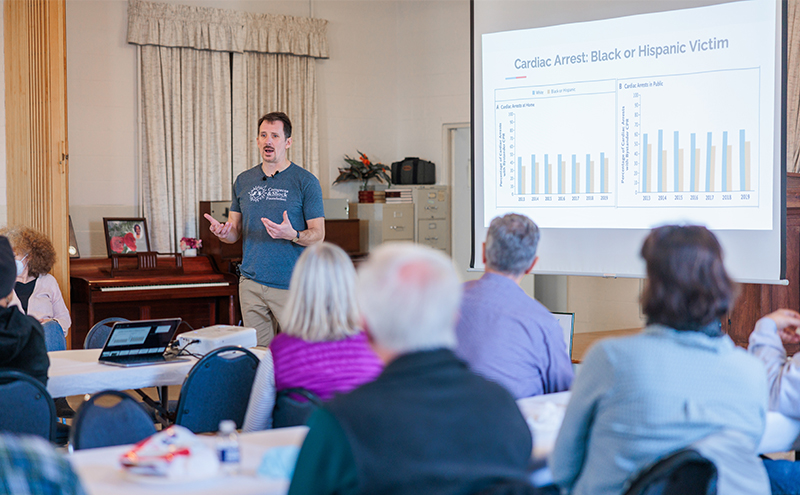Jack Perkins, MD, FACEP, knows that bystander training and prompt action by those first on the scene of a medical emergency can make the difference between life and death.
Dr. Perkins is the founder and executive director of the Compress and Shock Foundation, an organization based in Virginia that is hosting its seventh annual free CPR and AED Education Day on June 3. This day of action takes place on the first Saturday in June as a complement to the American Heart Association’s CPR and AED Awareness Week, recognized June 1-7.
Dr. Perkins’ team will place more than 80 AEDs in seven states this year, and he sees a significant opportunity for emergency physician-led training to change and save lives.
“There is no more challenging conversation in medicine than to inform a family of their loved one’s death. We see the consequences of bystander inaction and failure to use an AED in a timely manner. It is crushing for those in emergency medicine who must consider the thought, ‘what if this victim had received bystander CPR?’”
The foundation serves segments of the community that may not have equal access to health care or CPR and AED education.
“Our foundation has set our flag on equitable access to CPR and AED education for everybody. This is a life skill, nobody should be denied this education,” said Dr. Perkins.
Nearly half of U.S. adults are unprepared to help in a medical crisis, according to a survey from ACEP and Morning Consult. However, four in five adults (81%) said they would be willing to help in an emergency if they took a training course.
Related Resource: ACEP and the American Red Cross released “Until Help Arrives,” a course to educate and empower bystanders when they are first on the scene of an emergency. The 90-minute online course covers five fundamental actions that can be taken during a life-threatening emergency that can help sustain or save a life until EMS arrives:
- Hands-only CPR (no breaths)
- Automated external defibrillator (AED) use
- Choking first aid
- Severe bleeding control, including use of a tourniquet
- Administering naloxone for an opioid overdose.


